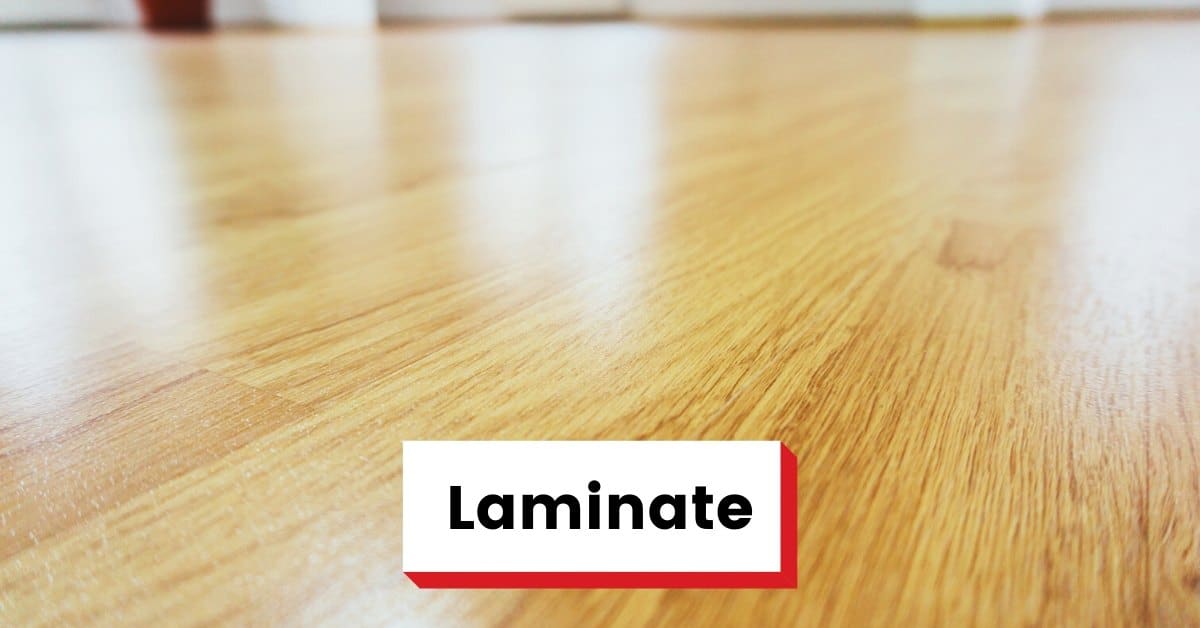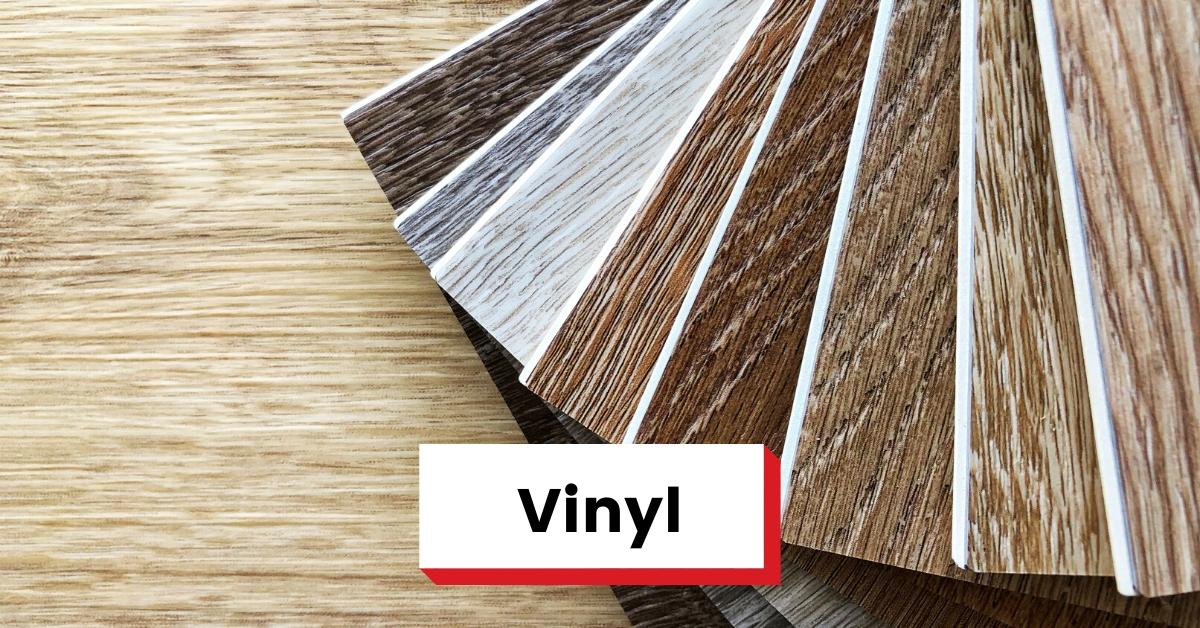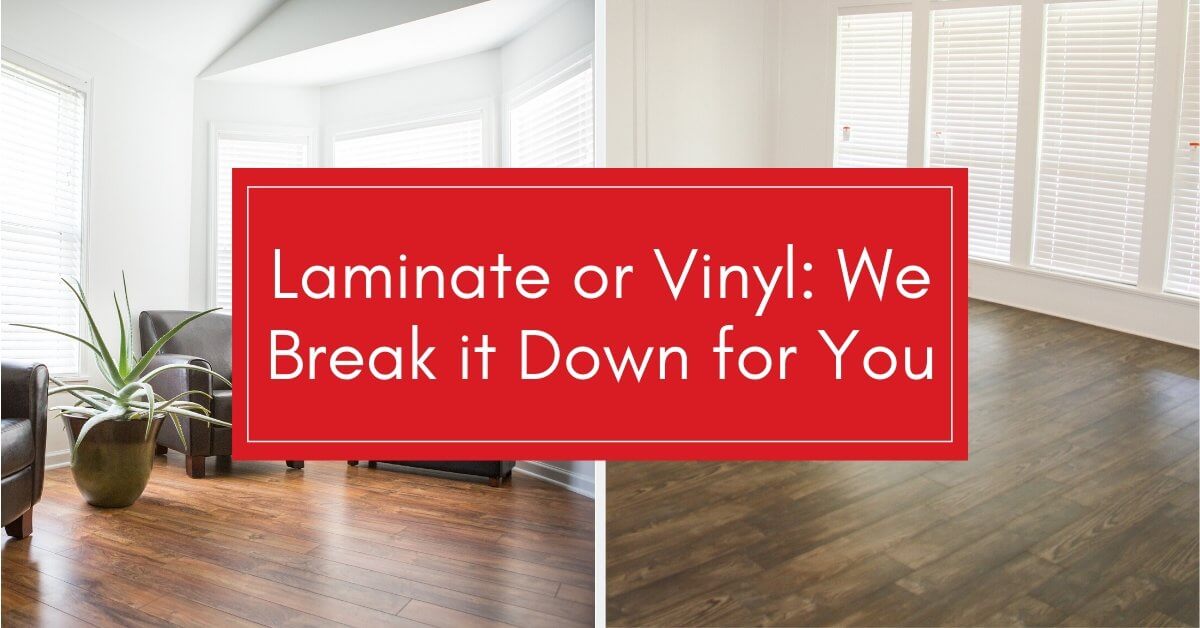Laminate Flooring, Vinyl Flooring
Laminate or Vinyl Flooring? We Break It Down For You
When picking new flooring for your commercial or residential space, there are many options to choose from. While it may seem that the choice should be left up to personal preference, there are advantages and disadvantages that are attached to each option.
Two of the more popular options for flooring are laminate and vinyl. Because they are so popular, they are always readily available with just about any flooring store having them in stock.
However, if it comes down to vinyl or laminate flooring, which is the best option? Well, the answer isn’t so simple and will be based on your needs. We have compiled some of the advantages and disadvantages of both vinyl and laminate flooring so you can make an educated decision on which flooring would best suit your needs.
Advantages of Laminate

Laminate isn’t just a popular choice due to its look or availability. It has many great advantages that make it an ideal choice for most spaces. Here are some of the more prominent advantages that accompany laminate flooring:
Durable
Not only is laminate flooring scratch-resistant, but it is also resistant to stains, impacts and sun damage.
Easily Installed
Laminate is possibly the easiest flooring to install. It does not need to be glued or nailed into the subfloor to be installed. The planks simply need to click together.
Versatile
Laminate can be installed just about anywhere regardless of the base surface. Whether you are dealing with concrete, plywood, wood, and vinyl flooring. Just about any base can have laminate installed over top of it.
Disadvantages of Laminate
While laminate does have a long list of exceptional benefits, it isn’t free from flaws. There are disadvantages that are attached to laminate that should be understood before installing it. Here is a list of some of the more concerning downsides of laminate:
Susceptible to Moisture
Due to the material laminate is made of, it can be very susceptible to water damage. If laminate takes in a lot of water it will begin to expand and break down. This can limit the number of spaces that can have laminate installed.
Not Easily Repaired
Laminate is much harder to repair than other flooring options even if it is just a simple patch job.
Proper Installation
If you want quality installation, it can be rather difficult to achieve without the assistance of a professional.
Advantages of Vinyl Flooring

Vinyl has been the go-to choice for affordable flooring since the 1950s and for good reason. There are many advantages of vinyl flooring that are the cause of it being a staple in many homes for so long. Here are some of the more outstanding qualities of vinyl:
Low maintenance
Vinyl flooring is one of the easiest flooring options to maintain. An occasional sweep and mop are all that is required to keep vinyl looking its best.
Water-resistance
Unlike laminate, vinyl is non-porous, meaning it is impervious to water penetrating its surface and causing damage, making it an ideal flooring option for damp spaces.
Inexpensive
The price of vinyl is very cost-effective. It costs anywhere from fifty cents to a dollar per square foot. While high-end vinyl can cost up to ten dollars per square foot, it is still much cheaper than most other flooring options.
Disadvantages of Vinyl Flooring
Although the positives listed above make vinyl an ideal choice for many situations, there are still some disadvantages that are attached to the flooring option. Here are some that you should consider before having vinyl installed:
Harmful Chemicals
After vinyl flooring is installed it can release chemicals that can lead to eye irritation, respiratory problems, or asthmatic reactions.
Non-Biodegradable
Vinyl does not naturally break down over time. It is also not easily recyclable so you will find a lot of old vinyl in landfills. Because of this, vinyl isn’t the best for the environment.
Damage to Subfloor
Over time, vinyl can cause the subfloor beneath it to wear down, which will lead to lumps appearing on the surface and later lead to rips and tears.
With all of this in mind, you can have a more easy time deciding whether laminate or vinyl is the better option for your space. Making the decision will come down to weighing the benefits you require and the setbacks you want to avoid.
If you are looking for quality vinyl or vinyl flooring, visit your nearest Flooring Liquidators location or call us at 1 (866) 473-7222 for more information. We have 14 locations across Southern Ontario. If you would like to find the store closest to you, use our store locator.


